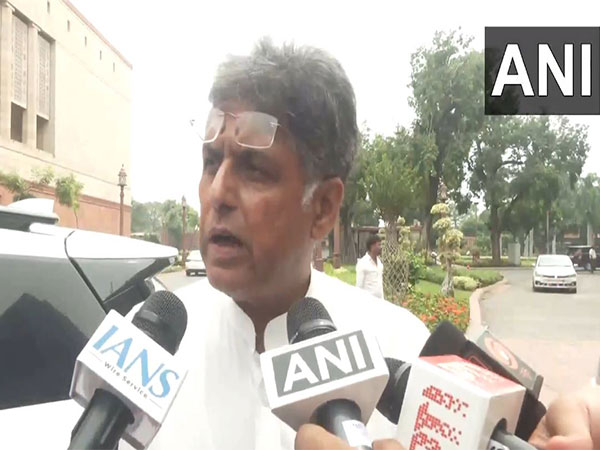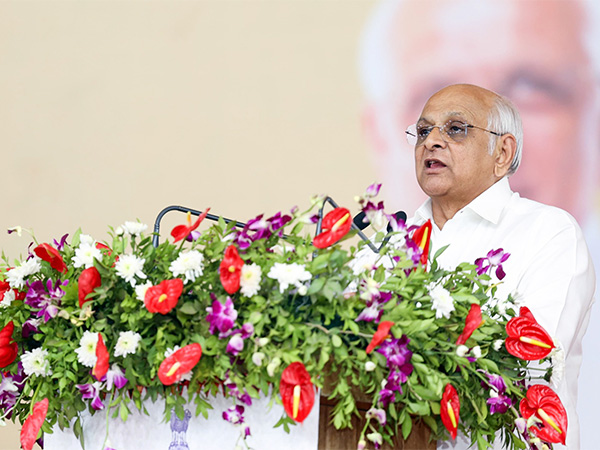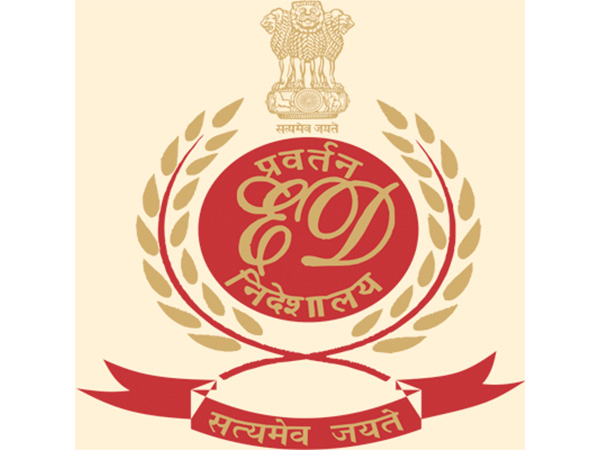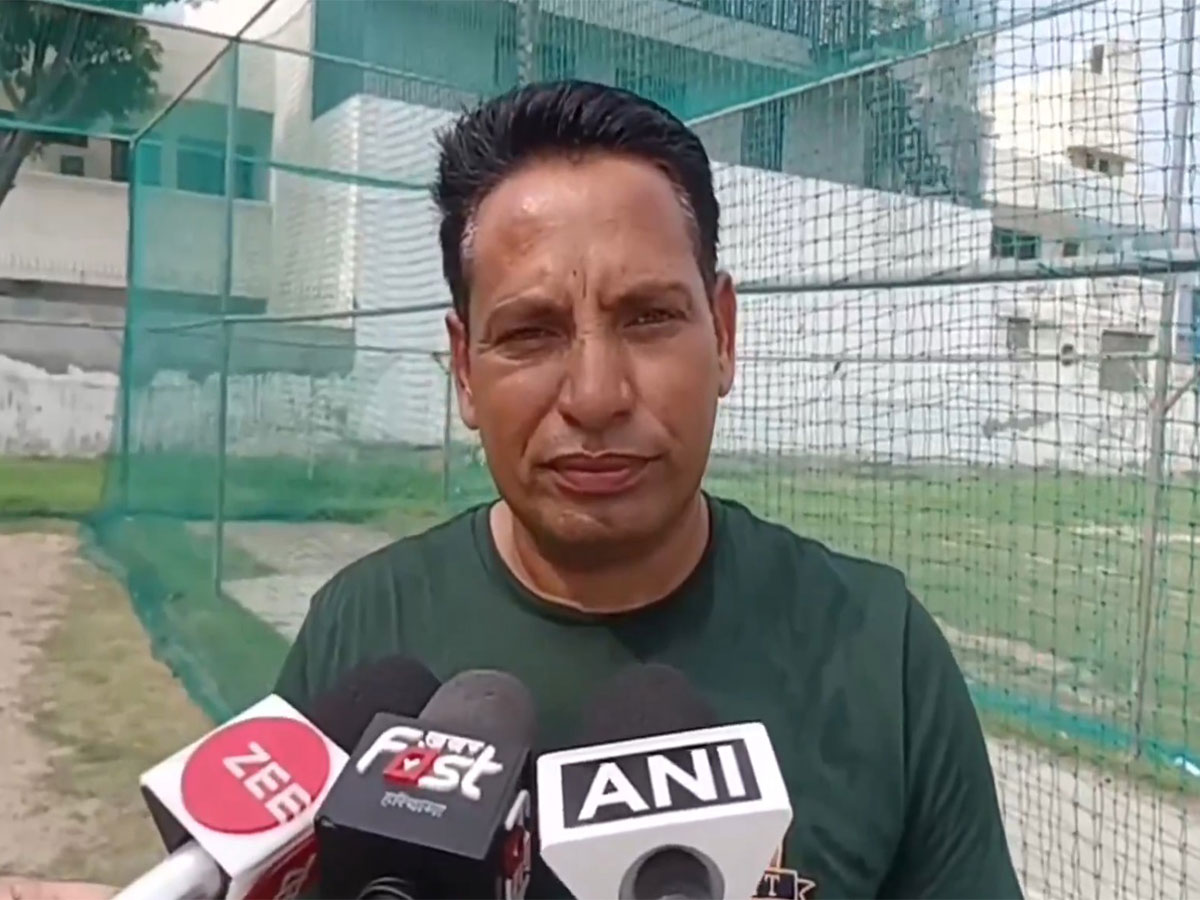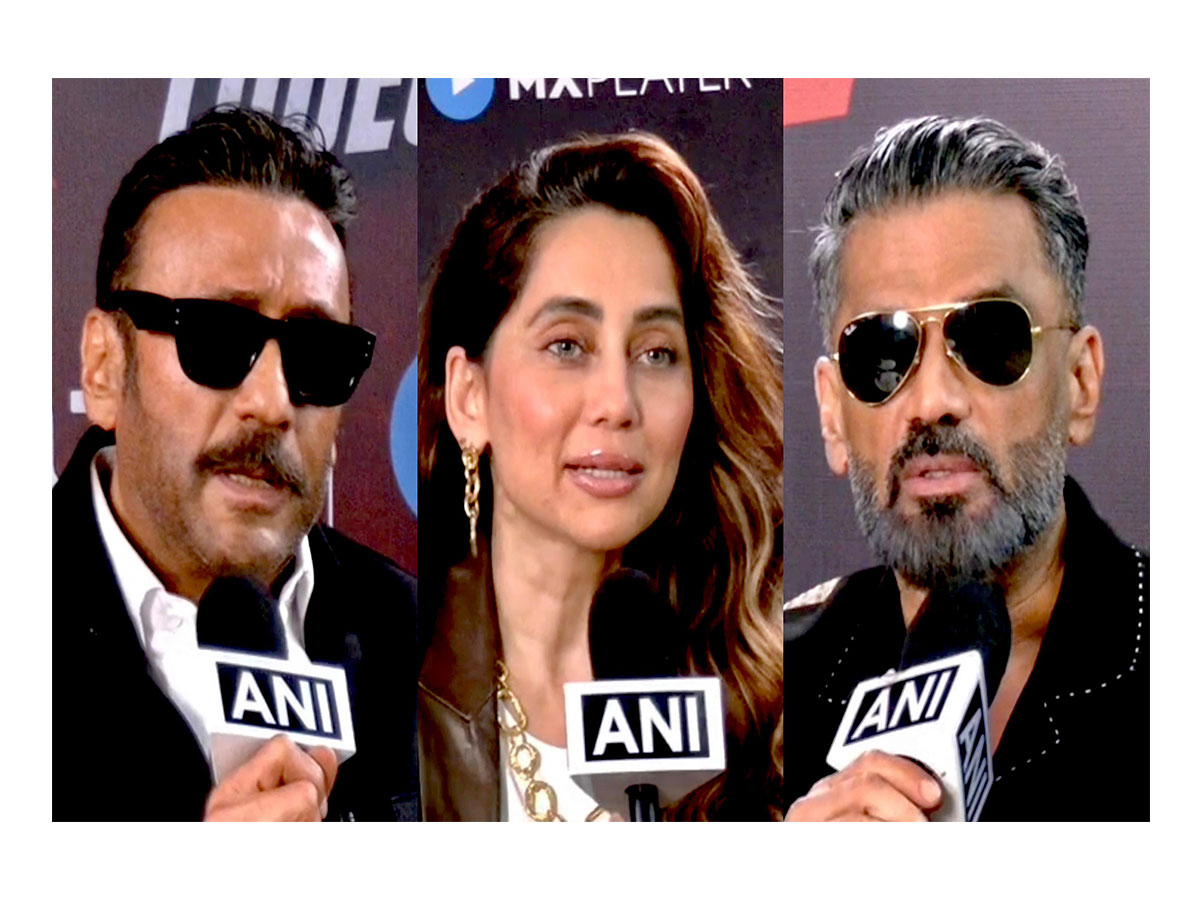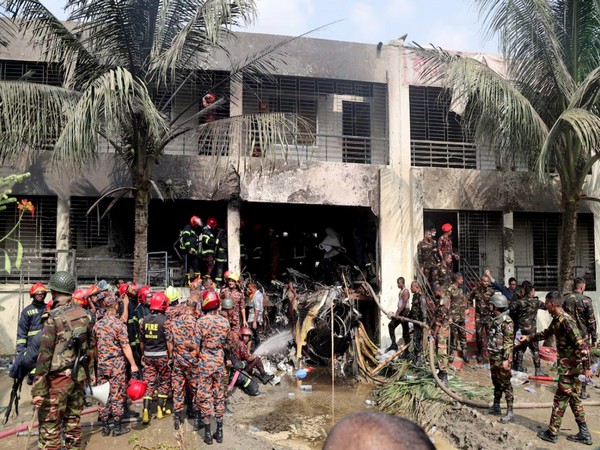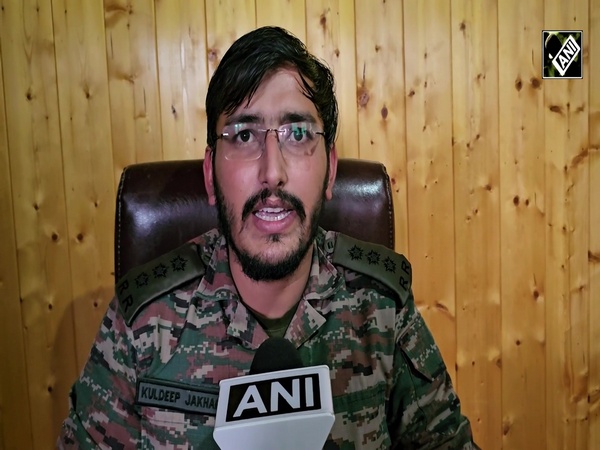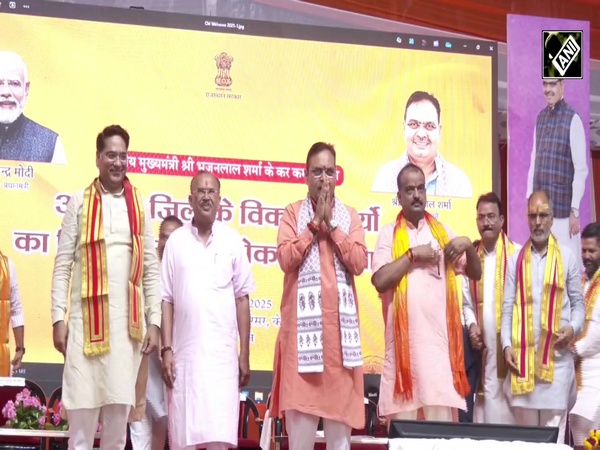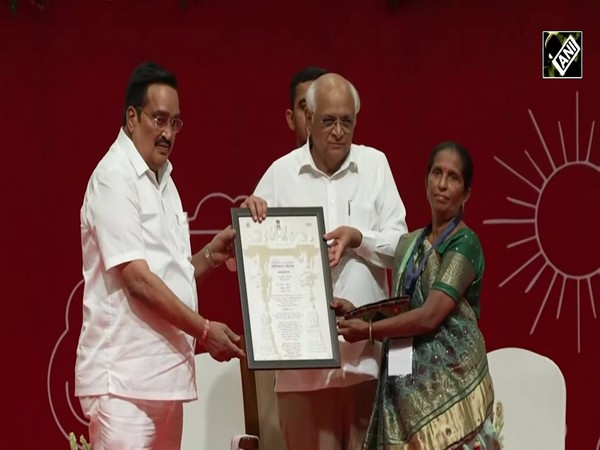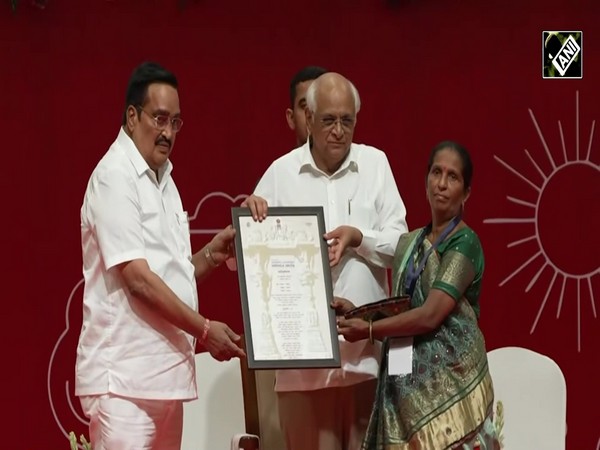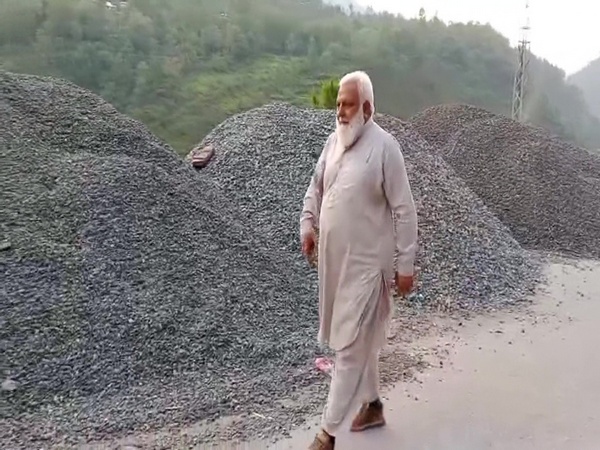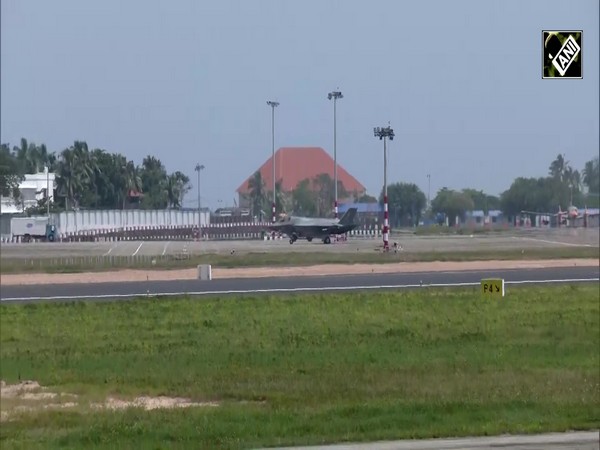Digital divide is there but incorrect to say villages are left out, says CoWIN chief
May 28, 2021

By Naveen Kapoor
New Delhi [India], May 28 : Rural India is now severely hit by the deadly second wave of COVID virus, majority of villages lack infrastructure, internet technology, are not at par compared to their urban counterparts with fewer smart phones and it is an uphill battle for less techy-savvy villagers to register and use Cowin app for vaccinations.
However, National Health Authority CEO and CoWIN chief agrees that there is a digital divide but he says it is incorrect to say that villages are left out. He adds it's not urban elites alone who got over 20 crore doses of COVID-19 vaccine.
In an interview with ANI, RS Sharma said that primary health centers, district collectors and officers have been briefed a number of times and they are actually creating awareness among the rural population.
"They are assisting them to get vaccinated, they are creating more awareness. It is not 20 crore people who have been vaccinated, all are not urban elites. Please understand that. You can see rural districts in India on our CoWIN websites. You can see each district-wise day-wise vaccination. To make an assessment that rural people are left out is not correct. We have the data, look at our portal, look at the vaccination centres and we don't collect the residential address of the person but obviously very remote areas we have seen have vaccinated 2000 people (and that) is a proof."
ANI has been reporting about the dearth of facilities in rural India and how villagers are finding it difficult to register for a jab, although the government claims that various measures have been taken by national health authorities to address these issues.
Sharma further said India has a large number of mobile and internet connections.
"The India which you are talking about is India 10 years ago, that is not today's India. We have 120 crore mobile connections, 60 crore smart phones, 70 crore internet connections. Most of the telecom providers are providing 4G data. We are biggest consumers of data in the world with a consumption of around 10 gigabyte per month. Indians watch videos on mobile, transactions happen on UPI, India is the biggest customer of WhatsApp and Facebook. It is insulting to say that there is a lack of technology," he said.
Sharma said that 57 percent of vaccinated people above the age of 45 got themselves registered at the vaccination facility and noted that India has large number of mobile and internet connections.
"Yes I agree there is a digital divide, there is an inequality. I agree with that and I am not denying that fact. It is wrong to assess that Indians are ill-equipped with technology. Secondly, we have developed an inclusive and accessible system, we have the provision of walk-in, 57 percent of vaccinated people above the age of 45 are walk-ins, four people can register on a mobile. You will accept there is one mobile phone in at least one family. You can also register through call centre, common service centers of villages are connected. Finish technology because it is not catering to 100 per cent is not a solution, the only solution is to simplify technology," he added.
He said over 2.5 lakh common service centres (CSCs) are assisting in the registration process in rural areas.
"All the common service centers in the whole country, they are being activated and they are partnering with us to book slots or make reservations and registrations for the people in the rural areas. Almost every two or three villages have one common centres, basically the panchayat headquarters, where people come and do the booking. We have made system as inclusive as possible," he said.
He said 57 per cent vaccination walk-ins in the over 45 age category means they did not have appointment or made reservations.
Sharma said problem is being faced in 18-44 age group as vaccine supply is less but it is temporary.
"The very fact more than half the population in the age group of 45+ are walk-ins and are getting vaccinated, it is proof enough of inclusivity of the system. Obviously problem is occurring in 18- 45 age group because of the fact that supply of vaccine is low. Let me tell you this problem is also a temporary problem, this problem will go away let's have a little bit of a patience," he added.
He said with new policy announced now even third party can also help in the registration process adding that one can create an app and link it with CoWIN.
Sharma said third-party integration policy is available on CoWIN website and social media platforms and APIs have been made operable in the sense of third party application.
"States governments and anybody who wants to link, he can use the APIs to create their own apps which may have different interfaces with the people and they can use these apps to fine-tune the eligibility criteria. Only thing we are insisting on is that there will be a single place where certificates will be issued, that's what we are saying," he said.
He said vaccination by RWAs and for employees of an organisation is being allowed.
Answering a query, he said there has been no case of leakage of data concerning CoWin.
"These are typical fellows who have nothing to do who raise this question without any understanding of the system. What data does CoWIN collect? It collects only your name, it collects only your gender and it collects only the year of birth. Now if I don't know your name how will I address. Your name is not a private thing your name is something that you expose to the world to connect. Similarly your gender is also not private and your date of birth or year of birth is also not a state secret," he said.
He said this information is collected and there is no case of breach of privacy and there will be no case.
Asked about vaccine slots quickly getting filled, he said it's a demand-supply issue and it is a temporary issue.
"It's a demand supply gap. What happens is if there is one slot and if there are 50 people or 100 people simultaneously eyeing on that slot there will be one lucky person one microsecond ahead of others. So he will get it and as I said this is a temporary situation which will go because that guy when he gets two doses, he will not even look at CoWIN."
He said pressure on the system will decrease as more vaccines are produced and procured.
Sharma said people demanding vaccination will not continue to increase and the total requirement of injections is known.
"It's also true that more and more injections are coming in the country. After all, we have vaccinated 20 crore people. More vaccines are coming. As the production of vaccines is ramped up, the demand will continue to decrease and satisfied customers will continue to increase. Therefore, pressure on the system is bound to decrease. It's a simple thing. I don't need to have mathematical capability to determine that," he said.
